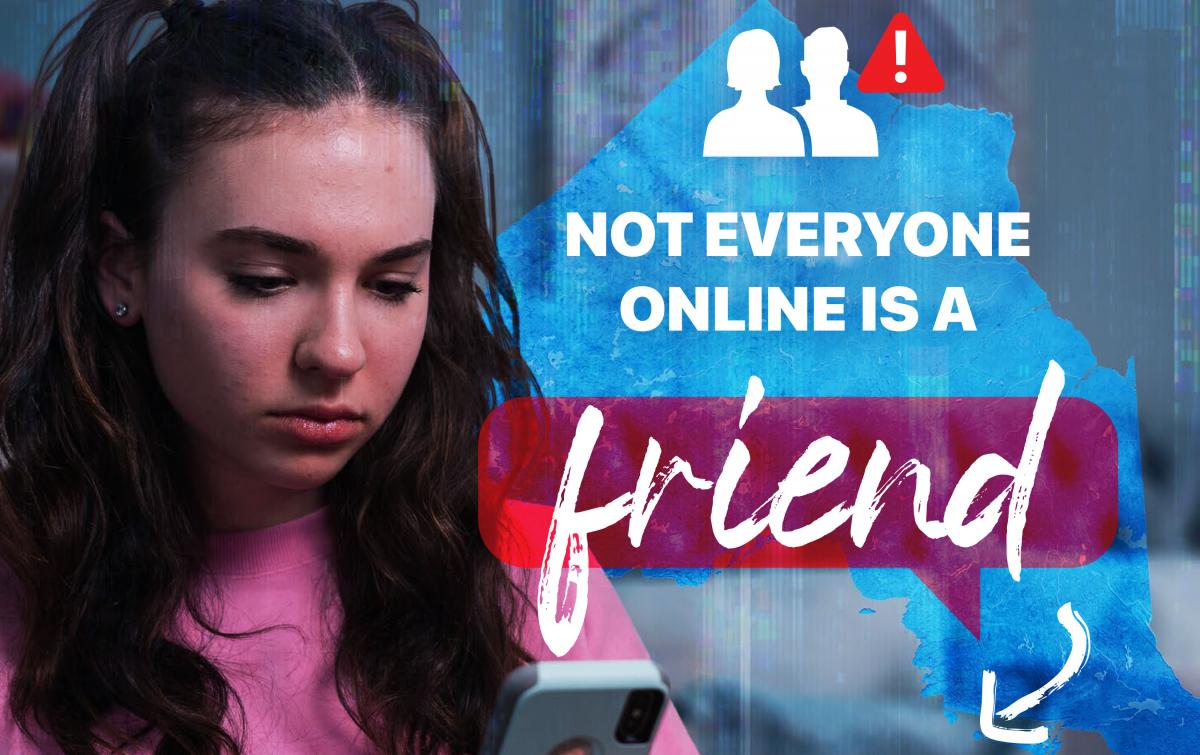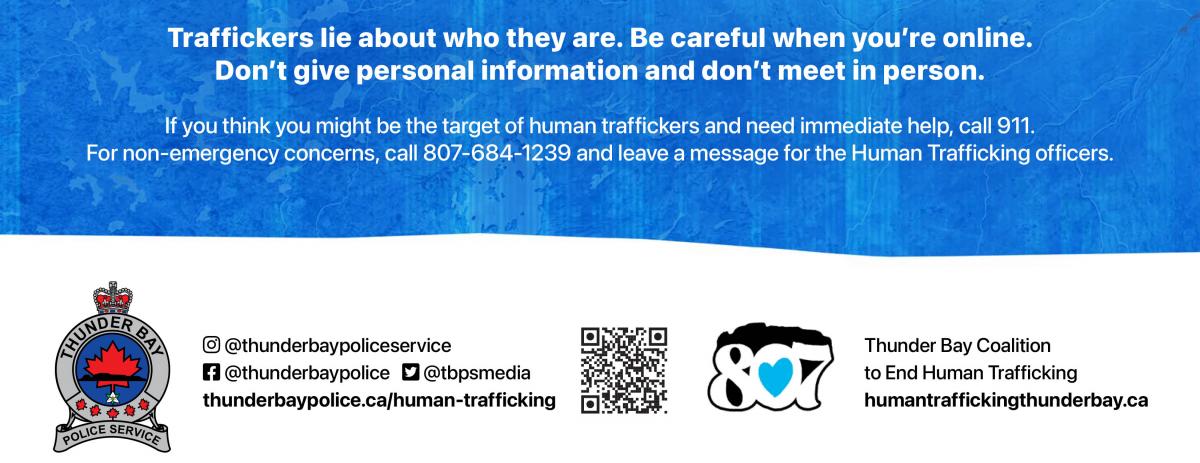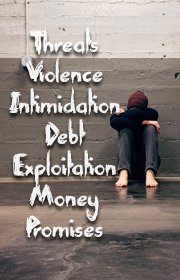WHAT IS HUMAN TRAFFICKING?
Human Trafficking involves the exploitation of people through force, coercion, threat, fraud or deception and may include acts generally defined as human rights abuses. Victims may be forced into labour, prostitution, or some other form of servitude. They may be forced to give up their home to drug dealers and gang members. Human Trafficking victims may be bound to their abusers through debt and may be forced into labour or prostitution to pay off that debt. A more thorough definition of human trafficking is provided by the Government of Canada's Department of Justice here.
TYPES OF HUMAN TRAFFICKING
| SEX TRAFFICKING | DOMESTIC SERVITUDE | FORCED LABOUR | ORGAN TRAFFICKING |
| Victims are manipulated or forced to engage in sex acts for someone else’s commercial gain. | Victims are forced to work in isolation and are hidden in plain sight as nannies, housekeepers or domestic help. | Victims are compelled to work for little or no pay, often manufacturing or growing the products we use and consume. | Victims are lured and recruited through debt bondage, and organs are forcibly removed to sell on the black market. |
All human trafficking has victims/survivors; people who become compromised and forced into doing work they would not otherwise do. It’s a cycle of abuse, where the victim is often groomed, then exploited. You can learn how to recognize signs of human trafficking in friends and family and help them to get out.
STAGES OF HUMAN TRAFFICKING
Luring: This can be in person but very often occurs online. Traffickers begin by paying their target multiple compliments to make them feel special. They try and collect as much information about them and ask about their home life, who they live with, their hobbies, etc. Their goal is to test the vulnerabilities and boundaries of their target.
Honeymoon: Traffickers will often romance their target to make them feel like they are in love. They may buy expensive gifts and make promises for the future to try and earn their target’s affection and trust. Sometimes the trafficker will introduce the target to illicit drug use and may initiate physical intimacy.
Coercion & Manipulation: Once trust and affection is established, the trafficker begins to use the information gained to manipulate the target. They start playing mind games, being less communicative, and reduce the number of compliments. Traffickers will toy with the targets emotions and withdraw from them to cause them to question his feelings. The trafficker may encourage sexual acts that the target is uncomfortable with, to desensitize them to these actions.
Exploitation: The last phase is exploitation which usually involves threatening family/friends, isolation (convinces or forces target to move away from home), withholding money & identification, and keeping track of the target with multiple cell phones. The trafficker will make the target feel indebted to him and suggests she owe him financially (for drugs/presents he gave her). At this stage the target is emotionally, mentally, and physically abused.

Online ruses used by traffickers may include the following:
The White Knight: Traffickers can get you to trust them by defending your honour from someone who is attacking you online (usually the attacker is the same person with a different fake profile).
Cat-Fishing: Traffickers can use fake pictures and pretend to be your age/gender to become your friend.
Peer Group Recruitment: Traffickers use people your age to lure and recruit you.
Assistance Lure: Traffickers can use fake job advertisements and promises to lure you into conversation and to meet in person (e.g. modeling, acting, music, nanny, etc.).
Online Relationship or “Romeo Pimp": Traffickers can pretend to love you, shower you with gifts, affection, and promises and then start using guilt to manipulate you.
Blackmail or “Sextortion”: Traffickers can use intimate pictures/videos as blackmail to manipulate you into sending more. They get these by pretending to be your boyfriend, using peer group recruitment, or recording online chat/video.
Better Life: Traffickers can use social status, expensive makeup/clothes, cellular phones/tablets, and other “gifts” to lure you into meeting them in person.
Mirroring Emotions: Traffickers might agree with everything you say online (e.g. “I feel that way too”, “I hate my mom too, she’s such a witch” etc.) and try to be the solution to all of your problems so that you trust them.
Wedge: Traffickers can isolate you from your family/friends by turning you against them. They will encourage you to keep your relationship a secret.
Using Online Games to Meet: Traffickers can use online games like Fortnight, Minecraft, Among Us, etc. to meet, then ask to switch to chat apps (Discord, Kik, Whisper, etc.) to continue the conversation.
Multiple chat Platforms/Games: Traffickers can use multiple chat platforms/games to make it harder for parents/guardians to keep track of conversations.
Risk Assessment Questions: Traffickers might ask questions to see if you’re a good target like “Are your parents around? Who do you live with? Do you have your own phone? Can you delete your chats? Who else uses your phone/computer?”
Aggression and Violence or “Gorilla Pimp”: Traffickers can use force, coercion, aggression, violence, etc. to get you to do things you do not want to do.

Red flags to watch out for when you are meeting people online:
- The person gives a lot of compliments and wants to start a private chat
- Mirrors your language
- Asks for your personal information
- Tells you to keep your relationship secret and delete chat history
- Promises gifts/favours
- Contacts you through multiple chat platforms/games
- Initiates intimate discussion about your appearance/sexual experience
- Insists on meeting face-to-face (and usually tells you to lie to your parents or guardian)
Tips to stay safe online when you are meeting people online:
- Learn how to set boundaries, say “no” and disengage with people online
- Don’t interact/chat with people you don’t know in “real” life
- Don’t accept presents (gaming dollars, electronics, etc.) from people you don’t know
- If you must use video (like Zoom, etc.) use a neutral backdrop and don’t show your home – remember that this can be recorded!
- Never meet in person someone you met online
Red flags to watch out for as a parent or guardian:
- Increased online activity
- Switching screens when you enter the room
- Secretive about websites they are using and people they are chatting with
- Possessing new electronics you didn’t purchase (phone, tablet, games)
- Not using age-appropriate language

Tips for parents or guardians:
- Watch for Vault apps on phone/tablet that disguise online chat apps to look like others. They may be disguised as a flashlight app, contact book app, etc.
- Ensure child’s location services are set to “off” when posting online
- Watch for unexplained money, more than one phone, unexplained absences, unexplained fatigue
- Talk to kids and teens about their “online life”
- Communicate with other parents/guardians and work together to keep kids/teens safe
- Know all your kid’s/teen’s passwords (check them regularly to ensure they haven’t been changed)
- Be familiar with online slang terminology (e.g. ASL = age, sex, location)
- Set boundaries around phone/tablet/computer use and don’t let them be used in private space or at bedtime
ARE YOU BEING TARGETED/ EXPLOITED?
Traffickers use, abuse and control their victims. Victims often fear of police, but can seek their help if they ever feel they are in danger. You may become or already be a victim of human trafficking if you answer yes to any of these questions:
- Is anyone controlling your freedom of movement?
- Is someone denying you access to your passport or travel documents?
- Is anyone telling you to perform sex acts?
- Is anyone forcing you to work for no or very little money?
- Are you forced to work long hours without proper breaks?
If you need police assistance call 684-1239. Or click the "Get Help" button below to connect discreetly with a Human Trafficking investigator.
NOT READY TO TALK TO POLICE?
Victims may be scared to speak to police, but that doesn’t mean there isn’t help. Various non-police agencies are available to assist victims of human trafficking.
The Thunder Bay Victim Services is a community response program providing immediate on-site service to victims of crime or disasters. With the consent of a victim, emergency services request a team of trained volunteers to provide on-site, short-term assistance to victims and offer referrals to community agencies for longer-term assistance. For help from Victims Services call (807) 684-1051
For more information about non-police resources please hit the button below to connect to the Thunder Bay Coalition to End Human Trafficking.
VICTIMS HIDDEN IN PLAIN SIGHT
Human Trafficking targets the community’s most marginalized and vulnerable. Victims may be young runaways, suffer from addictions, or have a history of being abused. They may not identify as victims and distrust outsiders. They are often afraid to come forward for fear their abuser will harm them or their family.
Human Trafficking victims are often unable to ask for help, and that’s why they need yours. Following are some signs that a person has become a victim of human trafficking (Please note: possible signs mentioned below are indicators to watch for, but does not confirm the person is involved in prostitution/forced labour):
SIGNS OF HUMAN TRAFFICKING
| Person is always monitored |
| Person is always controlled by someone else |
| Person is always being moved, usually from hotel to hotel |
| Drug use, addiction |
| Multiple cell phones |
|
Person does not carry any form of identification with them |
| Visible signs of scarring/tattoos (known as branding) |


